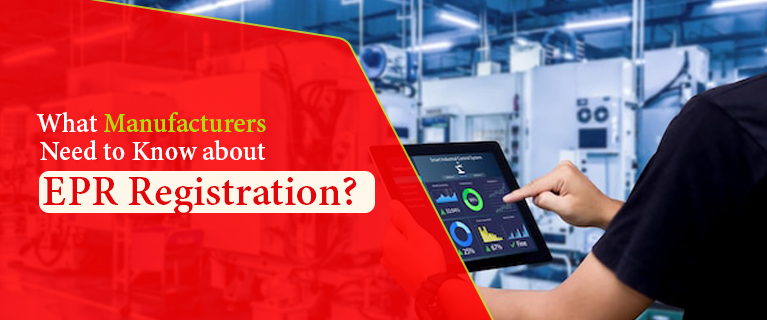How Do I Get An EPR Certification?
Extended Producer Responsibility (EPR) certification is a crucial aspect of sustainable waste management. It ensures that producers take responsibility for the entire lifecycle of their products, including their proper disposal or recycling. If you're a producer looking to obtain EPR certification, it's essential to understand the process involved. In this blog, we will provide a step-by-step guide on how to get an EPR certification. By following these steps, you can navigate the certification process effectively and contribute to a more sustainable and environmentally responsible business practice.
1. Understand EPR and Relevant Regulations
Before embarking on the certification process, it's important to familiarize yourself with the concept of Extended Producer Responsibility and the regulations specific to your industry or region. Research the EPR laws and guidelines that apply to your products to ensure compliance and understand your responsibilities as a producer.
2. Assess Product Scope and Compliance
Determine the scope of your products that fall under the EPR framework. Assess their environmental impact, recyclability, and potential for waste generation. Identify any gaps in compliance with EPR regulations and develop strategies to address them.
3. Develop an EPR Plan
Create an EPR plan that outlines your strategies and actions to meet the EPR requirements. This plan should include clear objectives, targets, and timelines for waste management, recycling initiatives, and engagement with relevant stakeholders. Ensure that your plan aligns with the specific EPR regulations in your industry.
4. Engage with Authorized Agencies
Identify the authorized agency responsible for overseeing EPR certification in your jurisdiction. Reach out to them to understand the application process, requirements, and any specific documentation needed. Establish a communication channel with the agency to clarify any queries or seek guidance throughout the certification process.
5. Prepare Documentation
Gather all the necessary documentation required for EPR certification. This may include product information, manufacturing processes, waste management plans, recycling strategies, and financial commitments. Ensure that your documentation is accurate, comprehensive, and aligns with the requirements set forth by the authorized agency.
6. Submit the Application
Complete the EPR certification application form provided by the authorized agency. Attach all the relevant documentation and submit it within the specified timeline. Double-check the application for any errors or missing information to avoid delays in the certification process.
7. Compliance Assessment and Audits
The authorized agency may conduct compliance assessments and audits to verify the accuracy and effectiveness of your EPR plan. Prepare for these assessments by ensuring that your processes, data, and waste management practices are in line with the EPR regulations. Any gaps or areas for improvement should be addressed right away.
8. Certification Approval and Monitoring
If your application and compliance assessments are successful, you will receive EPR certification. The certification will confirm your compliance with EPR regulations and your commitment to responsible waste management. The authorized agency may periodically monitor your compliance to ensure ongoing adherence to EPR requirements.
Conclusion
Obtaining EPR certification is a significant step towards sustainable waste management and environmental responsibility. By understanding the EPR concept, assessing product compliance, developing a comprehensive plan, engaging with authorized agencies, and submitting a well-documented application, producers can successfully obtain EPR certification. Compliance assessments, audits, and ongoing monitoring help ensure continuous adherence to EPR regulations. By embracing EPR principles, producers can contribute to a circular economy, reduce environmental impact, and demonstrate their commitment to sustainable business practices.




Comments
Post a Comment